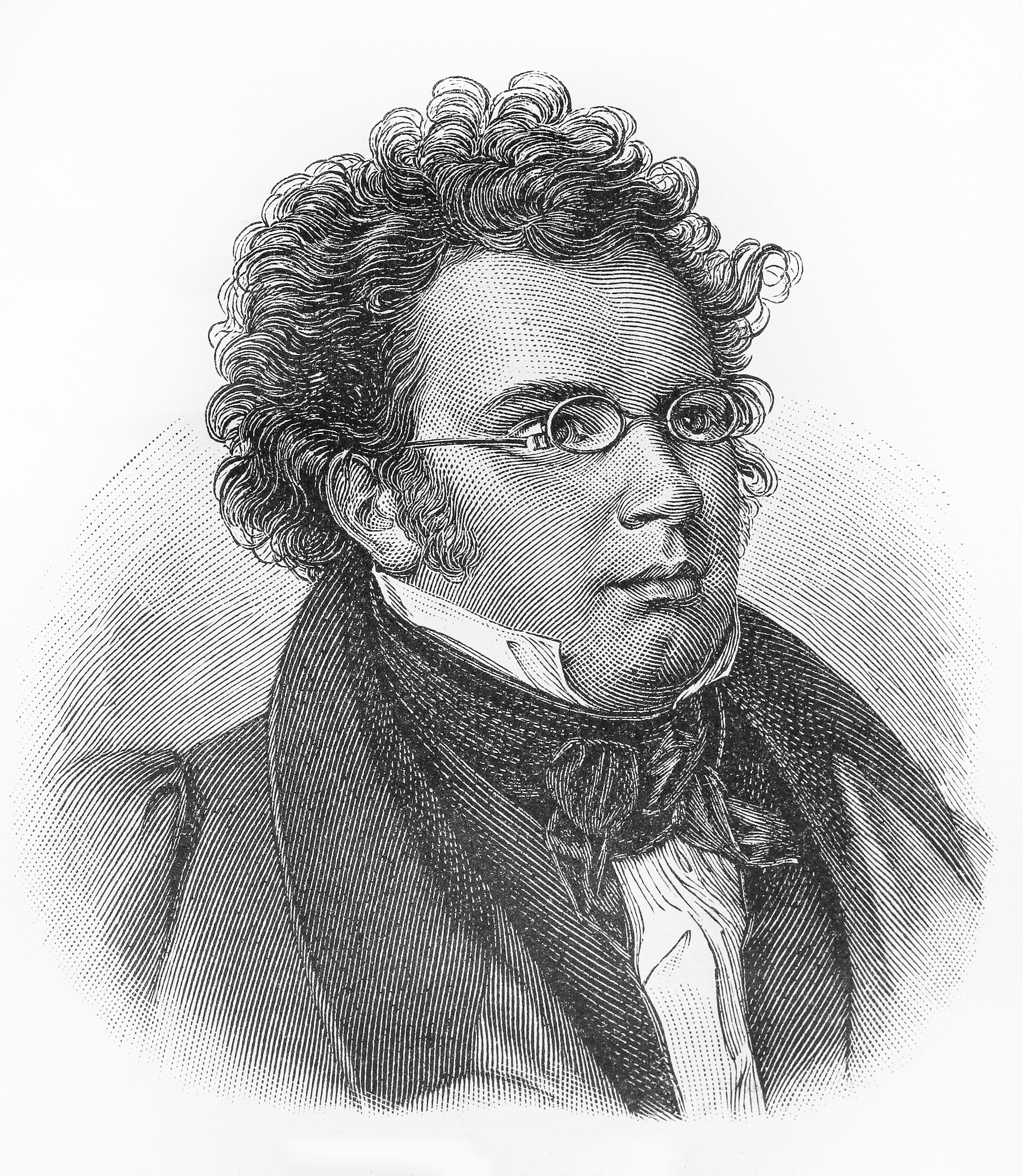Schubert << SHOO buhrt >>, Franz Peter (1797-1828), an Austrian composer, wrote an enormous variety of music in many forms. He was one of the greatest creators of melody, and perhaps the leading composer of lieder (German songs).

His life.
Schubert was born in Vienna, Austria, on Jan. 31, 1797. He was the son of a poor schoolmaster. By the time he was 11, he was a choirboy. He attended school at the Imperial and Royal Seminary and played the violin and sometimes conducted there. Schubert was composing when only 13 and wrote his first song the next year. He began his first symphony in 1813. At 17, he wrote the well-known song “Gretchen at the Spinning Wheel.” In 1815, he wrote his famous songs “Hedge Roses” and “The Erl King,” as well as his second and third symphonies, and several works for the stage. Loading the player...
Ave Maria
Schubert taught for a time in his father’s school and then went to live in Vienna with his friend the Austrian poet Franz von Schober in 1816. Schubert’s operas failed to earn much money, and he suffered from poverty because he lived a disorganized and easygoing life. In 1826, he tried, but failed, to get a position at the court of the Austrian emperor. He composed constantly and gained some recognition but managed to get only a few works published. He never achieved real success during his lifetime.
Schubert planned to visit Hungary in 1828, a year in which he composed several major works. But he became very ill and had to abandon the trip. On Nov. 14, 1828, he contracted typhus. He died five days later.
Schubert was a classic example of a man of genius so devoted to his art that he never adjusted to the world in which he lived. He never married. His music and personal charm won him admiring friends, but he gained little public recognition. Schubert heard only a few of his great orchestral works performed, and his great Symphony in C major was not performed during his lifetime. Ten years after his death, his brother Ferdinand gave the manuscript to the German composer Robert Schumann. Schumann, in turn, gave it to the German composer Felix Mendelssohn, who conducted the work in Leipzig (now in Germany). Ferdinand made many of Schubert’s works available for publication.
His works.
Schubert’s orchestral works include dances, overtures, and symphonies. The two-movement Symphony No. 8 in B minor (“Unfinished,” 1822) has long been popular. Many regard Schubert’s Symphony in C major (known either as No. 7 or No. 9, 1828) as his greatest masterpiece. His charming chamber music varies from an octet and two quintets to many string quartets and piano trios, as well as sonatas for piano and violin. Schubert also wrote many pieces for solo piano, notably sonatas, impromptus, waltzes, and Moments Musicaux (Musical Moments, 1828). He also composed many piano duets.
Loading the player...Symphony No. 8 in B minor
Schubert was especially attracted to the musically expressive possibilities of the human voice. He composed much religious music, including Masses, and choral pieces to nonreligious texts. He wrote several operas and operettas, which lacked theatrical effectiveness and failed. However, Schubert’s incidental music for the play Rosamunde, Princess of Cyprus (1823) is still popular.
Schubert’s special contribution to music lies in his more than 600 solo lieder. These include the two cycles (groups of related songs) called Die schöne Mullerin (The Beautiful Mill-Girl, 1824) and Winterreise (Winter Journey, 1827) and a collection of songs called Schwanengesang (Swan Song, 1828). Such separate songs as “Death and the Maiden ” (1817), “The Trout” (1819), “Ave Maria” (1825), and “Serenade” and “Who Is Sylvia?” (both 1826) are among the greatest in song literature. No other composer has written so many expressively beautiful songs of such high quality. See Lieder.
Loading the player...Rosamunde by Franz Schubert
Schubert was not a man of searching and tough-fibered intellect like the German composer Ludwig van Beethoven, a man he admired greatly. Schubert sometimes was unable to sustain his musical ideas once he had presented them in larger forms. Some critics feel that many of his sonatas are too long for the musical ideas they contain. This problem does not arise in his lieder, which are relatively brief and include a wealth of varied material. Schubert seems to have excelled in shorter forms. His songs would have placed him among the great composers even if he had written nothing more.
